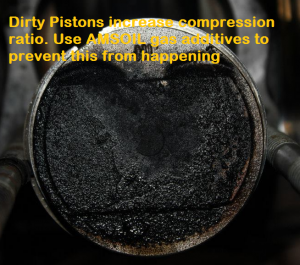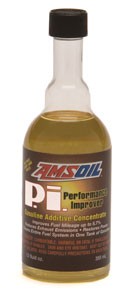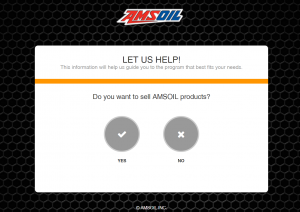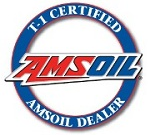We recently ran across a great article in the AMSOIL Dealer magazine that we thought you would be interested in reading. We see people every day using higher than required test gasoline like 89, 91 or 93 octane. Once you understand why this is a waste of money you will begin to start saving money. The key to being able to use regular gasoline in your vehicle is to keep your combustion chamber clean. The problem is that burning gasoline causes carbon build up in on your piston heads and other areas in the combustion chamber. Using AMSOIL fuel additives will help tremendously. This article was originally publish in the December 2016 issue.
OCTANE EXPLAINED: DOES PREMIUM, HIGH-OCTANE GAS BOOST PERFORMANCE?
A recent AAA report found that American motorists wasted $2.1 billion in the last year buying premium gasoline for engines designed to run on regular gas. The reasons why are likely due to the following misconceptions about premium gas:
- Contains higher energy content
(increasing power and fuel economy) - Formulated with higher-quality additives
(increasing engine cleanliness)
What is Premium Gas?
When motorists see premium 91-octane gas at the pump, they may assume it contains higher energy content compared to regular 87-octane gas. After all, “high-octane” is often synonymous with increased power and performance. The 91-octane gas should, they think, provide improved fuel economy and power.
“In Fact octane has nothing to do with energy content or quality”
In fact, octane has nothing to do with energy content or quality – it’s a measurement of the gasoline’s ability to resist engine knock. Higher octane denotes greater knock control.
What is Engine Knock?
On an engine’s intake stroke, the piston travels down the cylinder, allowing air/ fuel to fill the available space. Assume the cylinder holds 900cc when the piston is at bottom dead center. The piston then travels up the cylinder, compressing the fuel/air in preparation for combustion. Assume cylinder volume is reduced to 100cc when the piston is at top dead center. The relationship between the two volumes is known as the compression ratio. In this case, 900:100 is reduced to 9:1. The compression ratio indicates
cylinder pressure, and more pressure equals more power and greater efficiency. That’s why high-performance cars and heavy-duty diesels typically have higher compression ratios than standard cars or trucks.
While higher compression seems like all up-side, it can invite negative consequences. Compression heats the fuel/air mixture, allowing it to burn more efficiently. If compressed too much, gasoline can ignite too early, causing uncontrolled and early ignition. This leads to a knocking or pinging sound, robs the engine of power and can lead to engine damage. Typically, the engine’s computer will detect engine knock and adjust timing and the air/fuel ratio accordingly. Although this protects the engine from damage, it can
substantially reduce engine performance and efficiency.
Most high-compression gas engines require use of premium gas to better resist engine knock and prevent the computer from detuning the engine to protect against knock-related damage. Using premium gas in a clean, mechanically sound engine not designed to use it, though, provides no benefit.
In engines with carbon buildup on pistons or in the combustion chamber, however, premium gas can  provide some benefit. Deposits can reduce cylinder volume at top dead center, effectively increasing the compression ratio. This alone can lead to engine knock. The deposits can also become hot spots that pre-ignite the mixture, leading to engine knock.
provide some benefit. Deposits can reduce cylinder volume at top dead center, effectively increasing the compression ratio. This alone can lead to engine knock. The deposits can also become hot spots that pre-ignite the mixture, leading to engine knock.
“Using premium gas in a clean, mechanically sound engine not designed to use it, though, provides no benefit”
In these cases, a higher octane fuel helps resist engine knock and allows the engine to operate closer to its normal conditions rather than detuning to prevent engine knock.
For best performance, use the fuel recommended in your vehicle owner’s manual.
Higher Octane Doesn’t Mean Higher Quality
The other popular misconception is that premium gas contains a higher concentration of cleaning agents and other performance-improving additives.
While many formulators market a high quality premium gasoline, such as Shell* V-Power* Nitro+ or ExxonMobil* Synergy*, the premium gasoline at your local filling station may not be formulated to improve performance in any aspect other than octane rating. Quality can vary from brand to brand and station to station.
AMSOIL P.i.® (API) or AMSOIL Quickshot® (AQS)
These high performance gasoline fuel additives provide excellent detergency to help clean dirty
injectors and carburetors for maximum fuel economy and operability. Understand the truth about
premium gas, you will be more inclined to purchase an additives that provides the benefits and cost savings.
AMSOIL P.i. Performance Improver Gasoline Additive
AMSOIL P.i. is the most potent gasoline additive available today. As a concentrated detergent, it is unsurpassed in cleaning combustion chamber deposits, intake valve deposits and port fuel injector deposits. AMSOIL P.i. helps maintain peak engine efficiency, fuel economy, power and drivability in newer low mileage engines.
Improves fuel mileage-Reduced emissions-Restored power and performance-Reduced need for costly higher octane fuel
Each bottle treats up to 20 gallons of gasoline (including ethanol blends) Recommend to use every 4,000 or 3 months.
AMSOIL Quick Shot Small Engine Gasoline Treatment
Quickshot (AQS) is recommended for use in all two- and four-stroke gasoline-powered engines, including motorcycles, snowmobiles, boats, personal watercraft, ATVs, edgers, tillers, mowers, snowblowers, chainsaws, generators and farm and construction equipment.
Quickshot is a premium fuel additive formulated to thoroughly clean and restore peak performance in small engine and powersports equipment fuel systems. It also stabilizes fuel between uses and during short-term storage. Its revolutionary technology focuses on three major fuel-related issues plaguing these applications: ethanol, water and dirty pump gas.
AMSOIL products can be purchase online or through a local dealer. Visit the AMSOIL Online Store to get pricing and purchase information.
Wholesale buying options are available to qualified customers. Find out how to qualify for your own AMSOIL Wholesale Account today
*All trademarked names and images are the property of their respective owners and may be registered marks in some countries. No affiliation or endorsement claim, express or implied, is made by their use. All products advertised here are developed by AMSOIL for use in the applications shown.






